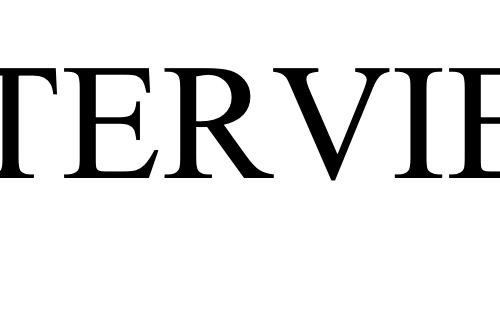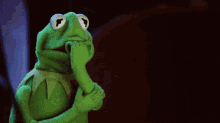Interview with a film student

Introduction:
Writing this reflective work will be difficult, as reflective essays receive the best marks when significant mistakes are made and analysed however in the case of this task (well aware of the risk of coming across as immensely narcissistic) I believe I few to no significant misgivings or mistakes. That is not to say that I did not make smaller mistakes which I will analyse here. I feel this confidence as I have experience in both interviewing and being interviewed for jobs, podcasts both on and off-screen. It is a skill that I have spent years working on as well as a lifetime of experiences to pull from. To reflect on the process I will break it down into three sections, preparation, being interviewed and interviewing others. I will use Burton’s ‘what? So what? Now what?’ Modal to structure this reflection.
Preparation
To prepare for this interview I had to choose an entry-level position that I would be suited for; this would assume that I graduate from university and complete the many projects I have currently going.
What role did I choose? I ended up picking a role as a Festival Assistant for the Cinemagic Film Festival. I chose this position as it is a job I am interested in applying for in September so would be directly useful to me to prepare for. This also is a company I passionately believe in and have a comprehensive understanding of.
So what did this choice end up meaning? This meant that I had a clear goal and motivation to prepare the best interview possible. Moreover, this meant that (as I have been working with the company for a number of months) that I would be going into the interview with a complete understanding of the company, significant first-hand experience and knowledge of the traits they value in that role.
Now what this resulted in was an almost too simple preparation, as I realised after doing the interview, I was applying for a job that I essentially already have and know significantly more about (both company and position) than those mock-interviewing me. This led to my answers to the questions being very detailed and the inequitable level of understanding providing a sense of security that would not exist in a “real” interview. As such while the role was the correct choice and the preparation worthwhile I would have found greater challenge if the interviewers posed more detailed and difficult questions.
Being interviewed
On reflection what I did in the interview also went very well, my feedback agreeing. Body language and presentation were key. Upon entering the room I acted professionally whilst retaining a friendly demeanour. I shook all three of the interviewer’s hands made short, positive small talk to put them at ease and smiled making personal eye contact with each to create a sense of personal engagement.
Upon being questions I answered quickly, only taking a pause for one question to consider my answer deeply and give the best possible answer. I made sure to not use any filler “er’s” or “umm’s” as these make one seem unconfident and distracts from your answers. I was at no point self-deprecating and retained professional confidence both I believe are essential to leaving a positive lasting impression. When asked questions about the company I demonstrated my knowledge of the field and the company tying it to specific experiences using a STAR structure when required. I told a short and relevant story when applicable to give a sense of my personality and past experiences. I chose engaging anecdotes that directly answered the questions, some examples of the stories include, talking about leading a patrol unit as a Cadet-Sergeant on exercise in Gibraltar as a time of responding well under stress, talking about the magical experience of watching Mulholland Drive for the first time, really selling my passion and the impact it had. When asked about my organisation I chose a specific production based answer where good organisation and hard work on my behalf saved a production I was directing.
So what the range of examples, specificness of the phrasing and confident presentation and delivery culminated in was presenting myself as a competent and interesting person to have on the team. My two issues included my mistimed joke describing Picasso as an experimental filmmaker but more seriously, due to my precarious housing situation at the time I was unable to compose a perfect outfit and looked tired. Despite this, I gave what I believe to be a great interview,
Now what this resulted in is a reassurance of my ability to give a good interview and a refresher of the process.
Interviewing others
I’ve had lots of experience interviewing others, having hosted numerous podcasts as well as acted as interviewer for a number of documentaries I have some understanding of how to draw out the truth from interviewees. Due also to experience being interviewed for opportunities I knew the kinds of questions that would challenge them while not being mean.
What happened was that I came with specific questions tailored to both the specific role that the interviewees would apply for but also tailored to that specific person.
Now what this lead to was, as I knew James has an understanding of technical cinematography far exceeding my own I instead attempted to challenge him with an experience-based question to which he gave a fantastic, heartfelt answer. Similarly, Alice has a unique path to her love of camerawork as such could tell an interesting story easily I instead asked her a more conceptual question revolving around her influences and personal style to better understand her artistic footprint.
So what did I learn from this? I understand more the power of good questions, as well as the power of difficult ones which will assist with the preparation of interview questions for my upcoming Advanced Film Production documentary Kirill.
Conclusion
I am genuinely proud of my performance in these interviews, upon reflecting on the I know this is a skill that I possess and have proven this time and time again through real-world experience. This experience was beneficial prep in the case that I apply for this kind of role.
You May Also Like

Simulated Interviews: A Pointless Exercise?
14 February 2022
9 February 2022


